If your subconscious “financial blueprint” is not “set” for success, nothing you learn or know or do will make much of a difference.
– T. Harv Eker
So let’s begin.
Introduction
T. Harv Eker’s journey from financial disaster to success is a testament to the power of changing one’s mindset. He discovered that rich and poor people have fundamentally different ways of thinking, ultimately shaping their actions and results.
This realization propelled Eker to study the thinking patterns of the wealthy and led to the creation of his book, “Secrets of the Millionaire Mind.” In this book, Eker emphasizes the importance of mastering the inner game of money to succeed in the outer game.
The book is divided into two parts, starting with “Your Money Blueprint.” Eker explains that financial failure is inevitable even with all the knowledge and skills in the world if one’s mindset is not aligned for success. He encourages readers to reflect on their self-perception, thoughts, habits, and confidence.
Furthermore, Eker emphasizes the belief in one’s deservingness of wealth and the ability to take action, even when not feeling motivated.
According to Eker, these aspects of character and thinking are critical determinants of success, as the outer world merely reflects the inner world.
Eker highlights the principle of cause and effect, asserting that one’s inner world shapes their outer world. The results one experiences in life, whether positive or negative, are a direct manifestation of their character, thoughts, and habits.
Money, or the lack thereof, is not the problem but rather a symptom of underlying issues. Therefore, one must first change the inner world to transform the outer world, such as by overcoming financial scarcity. Eker parallels with a personal example, where he dealt with recurring muscle tension.
While seeking symptomatic relief through physiotherapy provided temporary relief, the pressure persisted until he addressed the root causes, such as posture, sleep, stress, and habits.
Similarly, merely treating the symptoms of financial scarcity without addressing one’s thinking patterns and behaviors will lead to a recurring lack of money.
Eker’s book teaches readers how to cultivate a wealth-oriented mindset for financial success. He emphasizes the need to let go of old ways of thinking and adopt new ones to elevate one’s life.
By understanding and transforming their “money blueprint,” individuals can reshape their thoughts, beliefs, and habits.
The book’s second part, “The Wealth Files,” delves into 17 principles that govern how rich people think, act, and live. These principles provide a roadmap for adopting a new way of thinking that aligns with the mindset of the wealthy, ultimately leading to financial prosperity.
Process of Manifestation: T-> F -> A = R
T. Harv Eker introduces the concept of the “Process of Manifestation,” where thoughts lead to feelings, feelings lead to actions, and actions lead to results.
According to Eker, our thoughts are deeply programmed, primarily influenced by our parents, siblings, friends, teachers, and media. We rely on this programming for survival and learning, but when it comes to money, it often becomes a burden. This is where the “money blueprint” concept comes into play.
The money blueprint can be compared to a blueprint for a house. Before building a home, you create a detailed plan of what you want to construct.
Similarly, our financial blueprint consists of the information and programming we receive, particularly during childhood.
This conditioning determines every thought that arises in our minds and is often called the “conditioned mind.”
The main focus of “Secrets of the Millionaire Mind” is that our minds are also conditioned regarding money.
To understand our conditioning, Eker explains three primary ways in which we are influenced:
- Verbal Programming: The statements we heard about money, wealth, and rich people while growing up, such as “save your money for a rainy day,” “rich people are greedy,” or “money doesn’t buy happiness.” These statements become part of our subconscious and shape our financial lives, often hindering our economic well-being.
- Modeling: Our observations of how our parents managed money and the role money played in our households. We learn extensively through modeling as children, and these observations significantly impact our beliefs and behaviors.
- Specific Incidents: Significant experiences we had about money, wealth, and rich people during our youth. These incidents could include witnessing intense arguments between parents that led to divorce or hearing negative comments about rich neighbors. Such experiences shape the beliefs we carry into adulthood.
These three ways of conditioning contribute to our money blueprint, which acts as a preset plan for our financial success. If we hold negative beliefs about the rich or if money has always been a struggle, these profoundly ingrained thoughts will continue to influence our financial outcomes.
Eker emphasizes that when faced with a choice between deeply rooted emotions and logic, our subconscious mind prioritizes feelings.
To think like rich people and change our financial programming, Eker emphasizes the need to modify this conditioning. Throughout the book, he offers insights and strategies to help readers transform their money blueprint and adopt a wealth-oriented mindset.
By recognizing and challenging the limiting beliefs ingrained in our subconscious minds, we can take steps towards rewiring our thoughts and ultimately manifesting financial success.
The author emphasizes the importance of awareness as the first step towards change. By reflecting on how we were conditioned around money during our upbringing, we can become aware of its impact on our financial lives.
Understanding the effects of this conditioning is crucial to being able and willing to make a change. In the present moment, we can disassociate ourselves from our past conditioning and embrace new ways of thinking. This awareness empowers us to take control of our financial destiny.
The book’s second part focuses on the Wealth Files, which are 17 principles wealthy people believe in and live by.
Wealth File #1
The Wealth File #1 discussed is the belief that “I create my life,” contrasting with the view held by poor people that “Life happens to me.” To create wealth, we must acknowledge that we control our lives, especially regarding finances.
We must believe that our success, mediocrity, and struggles with money result from our actions and choices. Taking responsibility and sitting at the steering wheel of our lives is essential for creating a purposeful and meaningful existence.
The author highlights that poor people often adopt the victim role and tend to blame others for their circumstances.
Complaints and justifications only serve to attract negativity into their lives. Instead, we should avoid whining, complaining, and making excuses. For example, poor people often downplay the importance of money, but this mindset prevents them from attaining financial abundance.
The author humorously challenges the comparison between love and money, illustrating that both are important in their ways. Taking responsibility, avoiding victimhood, and steering our lives toward prosperity is crucial to success.
Wealth File #2
The Wealth File #2 addresses rich and poor people’s different approaches toward the “money game.” Poor people play not to lose, with survival and security as their primary concerns, while rich people play to win, aiming for massive wealth and abundance.
The author emphasizes the power of intention and advises setting goals beyond merely paying the bills. To become rich, the goal must be wealth and abundance, not just financial comfort. A wealth-focused mindset enables us to attract and manifest greater prosperity.
Wealth File #3
Wealth File #3 emphasizes that rich people are committed to being rich, while poor people merely want to be rich. Many individuals fail to achieve their desires because they need more clarity on their true desires. The author suggests asking essential questions for clarity: What do you want? Who do you aspire to be? How do you envision your ideal life?
Perhaps you’re reading this summary seeking answers. With a clear vision and goal, it becomes possible to attain what we desire. Most people don’t genuinely want to be rich due to negative beliefs ingrained in their subconscious minds.
Our conditioning has instilled mixed messages about wealth, hindering our progress toward financial success.
We can learn from rich people to develop clear internal messages about wealth. They show unwavering commitment, often working long hours, making sacrifices, and prioritizing wealth-building activities. Are you willing to make the necessary sacrifices to achieve your goals?
To create wealth, the author emphasizes the importance of being fully committed. This entails prioritizing wealth creation over leisure activities, socializing, and even personal celebrations. While finding a balance is essential, having an intense desire for wealth and a commitment to pursue it is crucial. With this level of commitment, becoming wealthy is likely.
Wealth File #4
Wealth File #4 highlights the contrasting mindset of rich and poor people regarding thinking big or small.
The author underscores that four factors determine one’s value in the marketplace: supply, demand, quality, and quantity. Offering more leads to higher compensation—a fair and straightforward principle.
A good lawyer, soccer player, or actress should be paid more than their less skilled counterparts. However, most people tend to think small due to fear of failure and feelings of inadequacy.
Yet, they overlook that life is not solely about oneself but also about contributing to others. Adding value to people’s lives is essential, and the by-product of helping more individuals is personal growth—mentally, emotionally, spiritually, and, undoubtedly, financially.
Thinking big expands our horizons and allows us to contribute meaningfully to the world.
Adopting a commitment mindset and thinking prominent are crucial for wealth creation. By clarifying our desires, making necessary sacrifices, and embracing a philosophy focused on contribution and adding value, we can transform our financial reality and achieve greater abundance in our lives.
Wealth File #5
Wealth File #5 emphasizes that rich people focus on opportunities while poor people focus on obstacles.
Poor individuals often adopt a mindset of doubt, asking, “What if it doesn’t work?” or simply believing that it won’t work.
In contrast, rich people take responsibility for their outcomes and approach situations thinking it will work because they will make it work.
Their focus lies on the potential rewards rather than the risks involved. When presented with an opportunity, rich people swiftly gather knowledge to make informed decisions, while poor people claim to be preparing but ultimately miss out due to fear and hesitation. The key is to take action, even if you need more preparation.
Waiting for the ideal moment will only lead to missed opportunities. T. Harv Eker calls this mindset an “Action-Taker.”
To truly understand and learn, one must immerse themselves in the field they desire to pursue. For example, if you want to become a hotelier, visiting and working in a hotel is wise to gain insights from within.
Remember, action always beats inaction, so seize opportunities and enter the corridor of success.
Wealth File #6
Wealth File #6 highlights the contrasting attitudes of rich and poor people toward successful individuals. Poor people often harbor resentment, jealousy, and envy when witnessing the success of others.
The author emphasizes the importance of admiration over envy. By admiring those who possess what you desire, you align yourself with their positive qualities and increase your chances of success. Instead of feeling envious of someone’s possessions or achievements, bless and love them. This shift in mindset allows you to cultivate a positive and abundant mentality.
Wealth File #7
Wealth File #7 stresses the significance of associating with positive and successful individuals. Wealthy people understand the value of learning from those who have mastered the game of wealth creation. To accelerate your own journey towards wealth, study rich people and model their actions and mindset.
Surrounding yourself with like-minded individuals who embody positivity and success will significantly influence your growth. By associating with eagles, you elevate your potential for success. Learning from those who have already achieved what you desire is essential.
If your current social circle lacks positivity, personal growth, or financial success, remember two tips from T. Harv Eker.
- First, don’t waste energy trying to change negative individuals. Instead, focus on being the best version of yourself.
- Second, trust that everything happens for a reason. While it may be challenging to maintain a positive and conscious mindset around negative influences, consider it a test of your resilience and determination.
Adopting a mindset of focusing on opportunities, admiring success, and surrounding yourself with positive and successful individuals can significantly impact your path to wealth creation.
By embracing action, shifting from envy to admiration, and consciously choosing your social circle, you can enhance your chances of achieving financial success and personal growth.
Wealth File #8
Wealth File #8 emphasizes that rich people are willing to promote themselves and their value, while poor people often hold opposing views about selling and promotion.
Resenting promotion becomes a significant obstacle to success. Wealthy individuals excel at promoting themselves because they believe that their offerings can genuinely assist others.
They must spread awareness to as many people as possible. By doing so, they not only help people but also achieve wealth. Failing to promote oneself hinders the path to riches.
How can one expect to become rich if others are unaware of their offerings? How can they sell their product if nobody knows about it?
The truth is, no one buys a product they are unaware of. With sales, one can earn something. Eker identifies reasons why poor people struggle with promotion:
They had negative experiences with inappropriate promotion, but dwelling on the past holds them back.
They faced disempowering moments when attempting to sell something and experienced failure or rejection. Overcoming the fear of failure is crucial.
They have been conditioned to believe that promoting oneself is impolite, which prevents others from discovering them.
To become rich, one must passionately and enthusiastically promote their value. Selling oneself and one’s offerings requires being enthusiastic and passionate. It may indicate a lack of importance if one cannot genuinely be passionate about what they offer. However, the most outstanding value is only helpful if it is promoted.
Who else but oneself should be enthusiastic about their product? Therefore, stepping out and promoting one’s offerings passionately and enthusiastically is essential.
Wealth File #9
Wealth File #9 underscores that rich people are more significant than their problems, while poor people often shrink in the face of their problems. The size of the problem is inconsequential; what truly matters is the size of the individual.
Having a big issue means being a small person. One can either complain about the problem or work on finding a solution. It all boils down to personal size and attitude.
Whatever transpires in one’s life, whether good or bad, exciting or mundane, challenging or easy, truly matters how it affects them.
There are no inherent problems; there are only situations that individuals choose to perceive as problems.
Some people allow conditions to become problems, while others remain unaffected. Individuals can reduce the issues they encounter by prioritizing personal growth and self-improvement.
The willingness to promote oneself, embrace selling, and be more significant than problems are critical differentiators between rich and poor individuals.
By adopting a positive attitude towards self-promotion, passionately promoting one’s value, and recognizing the importance of personal growth, individuals can enhance their chances of achieving wealth and overcoming obstacles with resilience.
Wealth File #10
Wealth File #10 highlights that rich people are excellent receivers while poor people struggle. The author, T. Harv Eker, shares a personal story about his transformation.
In the past, he wouldn’t bother picking up a penny from the ground, but now, as a wealthy individual, he eagerly collects anything resembling money.
Eker even kisses it for good luck and proclaims himself a money magnet. The reason behind our poor receiving abilities lies in conditioning. Many grew up hearing phrases that made them feel inadequate or not good enough, instilling a sense of unworthiness. Over 90 percent of individuals harbor feelings of not being good enough.
This feeling of unworthiness hinders our ability to receive. Even those with supportive parents may struggle with self-worth.
However, Eker emphasizes that we have the power to change this perception. We must stop buying into the notion of unworthiness and take the necessary actions to become rich. Giving and receiving are equally important, and we are depriving those who wish to provide for us by refusing to accept.
Wealth File #11
Wealth File #11 states that rich people are paid based on results, while poor people opt for time-based compensation.
While there is nothing wrong with receiving a steady paycheck, it becomes problematic when it limits our earning potential.
Having a ceiling on income impedes wealth accumulation. To become rich, one must work for themselves or, at the very least, on commission or with a percentage-based pay structure.
Although it may seem less secure, it is the path to earning more money and achieving wealth.
The more value we deliver, the greater our compensation should be. In a traditional 9 to 5 job, everyone is paid based on their work time, resulting in equal pay. Eker is resolute in his advice: if you aspire to be rich, work for yourself!
Wealth File #12
Wealth File #12 draws attention to the contrasting mindset of rich and poor people. Wealthy individuals live in a world of abundance, while poor individuals reside in a world of limitations. The misconception that money and happiness are mutually exclusive is a product of “poor” programming.
Choosing between a successful career, a close relationship with family, business or fun and play, or money or meaning in life is unnecessary. Wealthy people understand that they can have both. They desire both wealth and happiness. They believe in abundance and that there is enough for everyone to have everything they want.
Money brings freedom but does not change who we are at our core. Therefore, we can be both happy and prosperous. Choosing both is possible because life is abundant.
Being an excellent receiver, choosing results-based payment, and embracing a mindset of abundance are critical differentiators between rich and poor individuals.
By reprogramming our beliefs about worthiness, adopting a results-oriented approach to income, and understanding that we can have wealth and happiness, we can position ourselves for financial success and fulfillment.
Wealth File #13
Wealth File #13 emphasizes that rich people focus on their net worth, while poor people fixate on their working income.
Although this concept may initially seem exclusive to the wealthy, it holds for everyone. The author outlines four crucial factors contributing to net worth: income, savings, investments, and simplification.
Income is divided into two forms:
- Working income and
- Passive income.
Operating income is earned through diligent work, while passive income is generated without active involvement. However, both sources of income are essential in building wealth.
Savings play a vital role as well. Regardless of how much money one earns, wealth cannot be created if it is spent entirely without protection.
Unfortunately, many individuals have a spending-oriented financial blueprint, where expenses rise proportionately to income. This phenomenon, known as Parkinson’s Law, prevents payment alone from generating wealth.
Investment is a logical step in wealth building. By saving money, individuals create investment opportunities. Rich people invest time and effort into learning about investing, while poor people often perceive it as exclusively for the wealthy, leaving them financially stagnant.
Simplification is the fourth factor contributing to net worth. By adopting a cost-effective lifestyle, individuals can reduce their expenses, increase their savings, and have more funds available for investment.
Rich people comprehend that building a high net worth requires balancing all four elements. Therefore, they strive to increase their income, save more, educate themselves about investments, and adopt a more frugal lifestyle. To enhance wealth, one must either earn more or spend less.
Wealth File #14
Wealth File #14 asserts that rich people effectively manage their money, while poor people often mismanage it.
It’s not about intelligence but about cultivating supportive money habits. Becoming a master of cash requires effective money management.
Waiting to manage money until one is financially caught up is akin to an overweight person postponing exercise and dieting until after losing weight – it’s a futile approach that leads nowhere.
The key is to start by properly handling the money one already has. This demonstrates the ability to manage money, setting the stage for acquiring more. A universal law states that until one shows they can handle what they possess, they won’t receive any more.
Therefore, even if the amount is small, developing the discipline of managing it is essential. To do so, T. Harv Eker suggests opening a Financial Freedom Account and allocating 10% of every dollar received to this fund, with the money designated solely for investment.
Controlling money is vital because if left unmanaged, it controls individuals. By taking charge of finances, one gains control over their life. Managing money profoundly impacts all areas of life, leading to personal and financial.
Rich people prioritize net worth over working income. They recognize the significance of income, savings, investments, and simplification in building wealth. Similarly, they excel at managing their money through proper allocation and disciplined financial practices.
By adopting these principles, anyone can lay the foundation for financial success and experience significant improvements in all aspects of life.
Wealth File #15
Wealth File #15 highlights that rich people make their money working hard for them, while poor people work hard for their money.
The concept that one must work hard to become rich is debunked. The key lies in working smart and allowing money to work for you.
Wealthy individuals understand this principle and combine hard work with wise financial decisions. They focus on long-term strategies and utilize their cash intelligently by saving and investing for passive income.
Financial freedom is achieved when passive income surpasses expenses. Passive income can be derived from two primary sources. The first source is money working for you, which involves investment earnings from financial instruments such as stocks, bonds, or appreciating assets that can be sold for cash.
Acquisitions play a crucial role in this process, as they have the potential to appreciate over time, such as purchasing land and selling it at a later point.
The second source of passive income is business working for you. This entails generating ongoing income from businesses where personal involvement is optional for the company to operate and yield profits.
By making wise choices and saving money today, individuals can invest for the future and attain financial freedom in the following days. This is the path the wealthy follows: working hard today, working bright tomorrow, and eventually enjoying a life free from work.
Rich people understand the importance of making money work for them. Therefore, they combine hard work with wise financial decisions, focusing on long-term strategies and generating passive income. By saving and investing wisely, anyone can achieve financial freedom and break free from the cycle of working hard for money.
Wealth File #16
Wealth File #16 emphasizes that rich people take action despite their fears, while poor people allow fear to hold them back.
Action serves as the bridge between our inner thoughts and the external world. Since humans are creatures of habit, practicing acting in the face of fear, doubt, worry, uncertainty, inconvenience, discomfort, and even when we lack motivation is crucial. Life will be challenging if we only do what is easy, but if we are willing to do the hard things, life will become easier.
Consider the example of health. Most people understand the importance of eating healthy and exercising regularly. Yet, why do health issues continue to grow?
It is because people need to align their actions with what they know is right. Acting following our beliefs may not always be easy, but whether we aim for good health or wealth is necessary.
Sometimes, we must face fear and discomfort and exert effort. This is precisely what wealthy people do. They act despite fear, sadness, pain, or lack of motivation.
The author emphasizes that taking action is crucial regardless of the circumstances or our emotional state. The step is what differentiates failure from success. By taking action, we have already achieved victory.
When we are willing to act in challenging situations, success becomes attainable, and life becomes more accessible. Without action, we remain stagnant or even regress. Therefore, taking the necessary steps for our personal growth is essential.
Wealth File #17
Wealth File #17 highlights that rich people consistently seek opportunities to learn and grow, while poor people believe they already know enough. Becoming rich is not merely about achieving financial wealth but also about personal development and growth of character and mindset. To become rich, we must evolve as individuals.
The change pertains not to physical height or hair length but to developing our personality and personal traits.
Personal growth involves continuously improving ourselves and striving to become the best version of who we are. Each day, we should aspire to learn something new before going to bed, expanding our knowledge and enhancing personal growth.
If we continue to do what we have always done, we will keep obtaining the same results.
As Jim Rohn wisely said, “If you are not growing, you are dying.” The fastest and most sustainable path to wealth is by focusing on self-development.
The more we learn, the more we can earn. The author emphasizes that wealth is about us as individuals, not merely about money, which is often the primary objective people pursue.
However, to attain wealth, we must first cultivate strong character and a growth mindset. Ultimately, it is all about our journey.
Conclusion
To bring about a change in the outcomes we experience, we must first address the underlying causes. Similarly, we must first alter what is invisible to transform what is visible. An old saying reminds us that we tend to forget what we hear and remember what we see but truly understand what we do.
Reflect upon actions you can take right now that would align you with the mindset and behavior of wealthy individuals.
This serves as the initial step towards progress. While reading is a good starting point, real-world success depends on our actions.
Therefore, invest effort in self-improvement, shaping your thoughts, nurturing your mind, and developing your true self. The critical ingredient for the success of self-made millionaires is their millionaire mindset. In conclusion, the author emphasizes that to receive the highest rewards; one must strive to become the best version of oneself. Thank you, and best of luck on your journey.
Secrets of the Millionaire Mind Book Review
“Secrets of the Millionaire Mind” by T. Harv Eker is an inspiring and practical guide to transforming one’s mindset towards wealth and success.
Eker emphasizes the importance of adopting a “rich” mentality by debunking common myths around money and providing actionable strategies to develop a millionaire mindset. The book’s strength lies in blending personal anecdotes, psychological insights, and financial principles into a coherent and engaging narrative.
While some may find the emphasis on positive thinking and affirmations repetitive, overall, “Secrets of the Millionaire Mind” offers valuable lessons for anyone seeking financial abundance and personal growth.
Contents



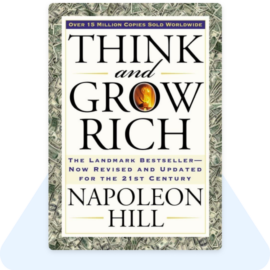

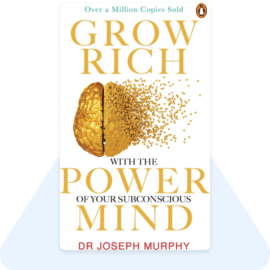
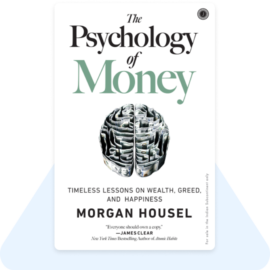

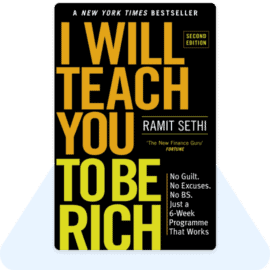



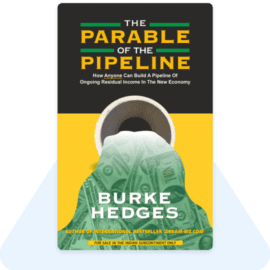

Is it possible to manifest wealth and success by shifting our thoughts (T) to focus on our feelings (F) and taking inspired action (A) to achieve our desired results (R)? How can we apply this process effectively in our daily lives to attract abundance and prosperity?”,
“refusal